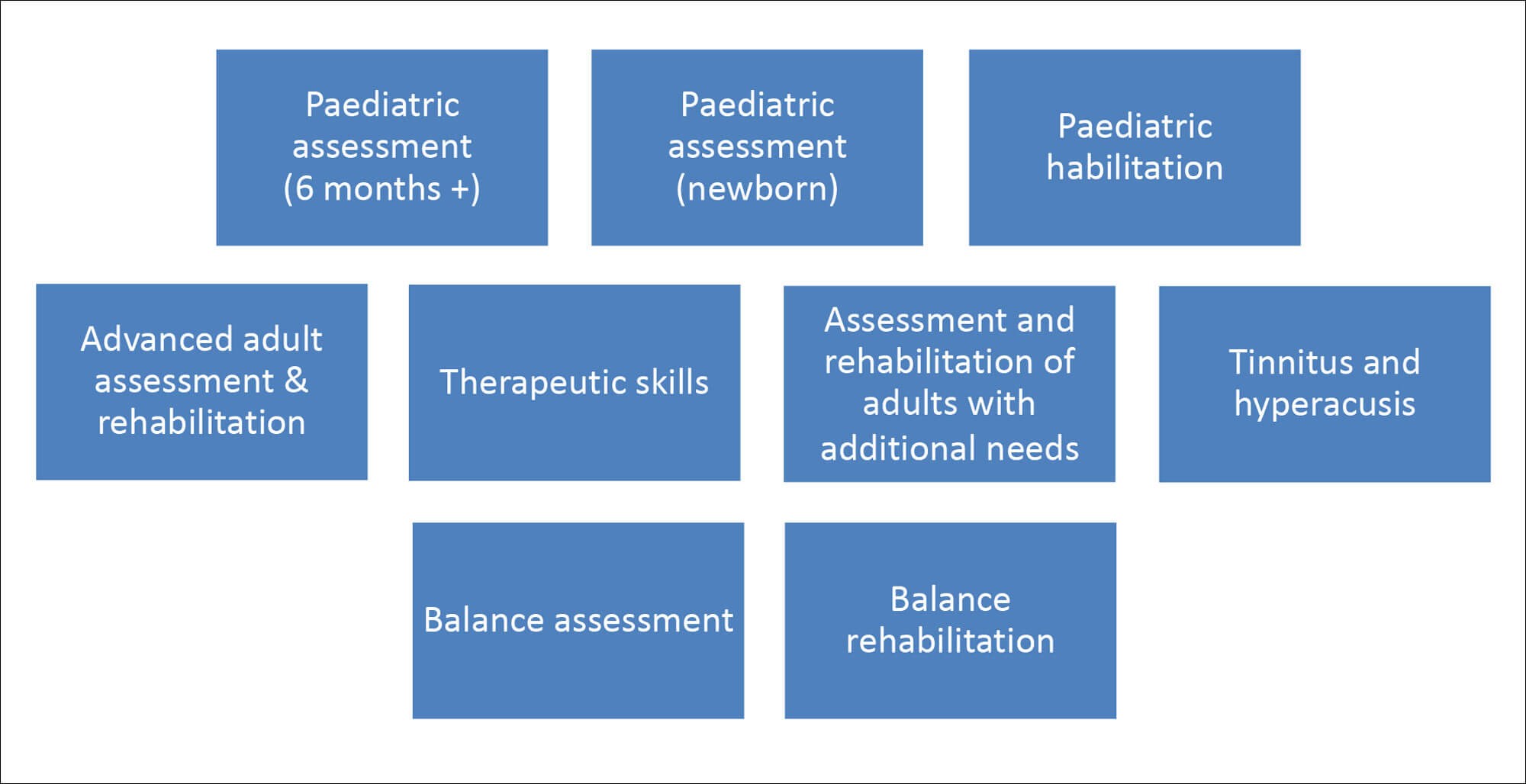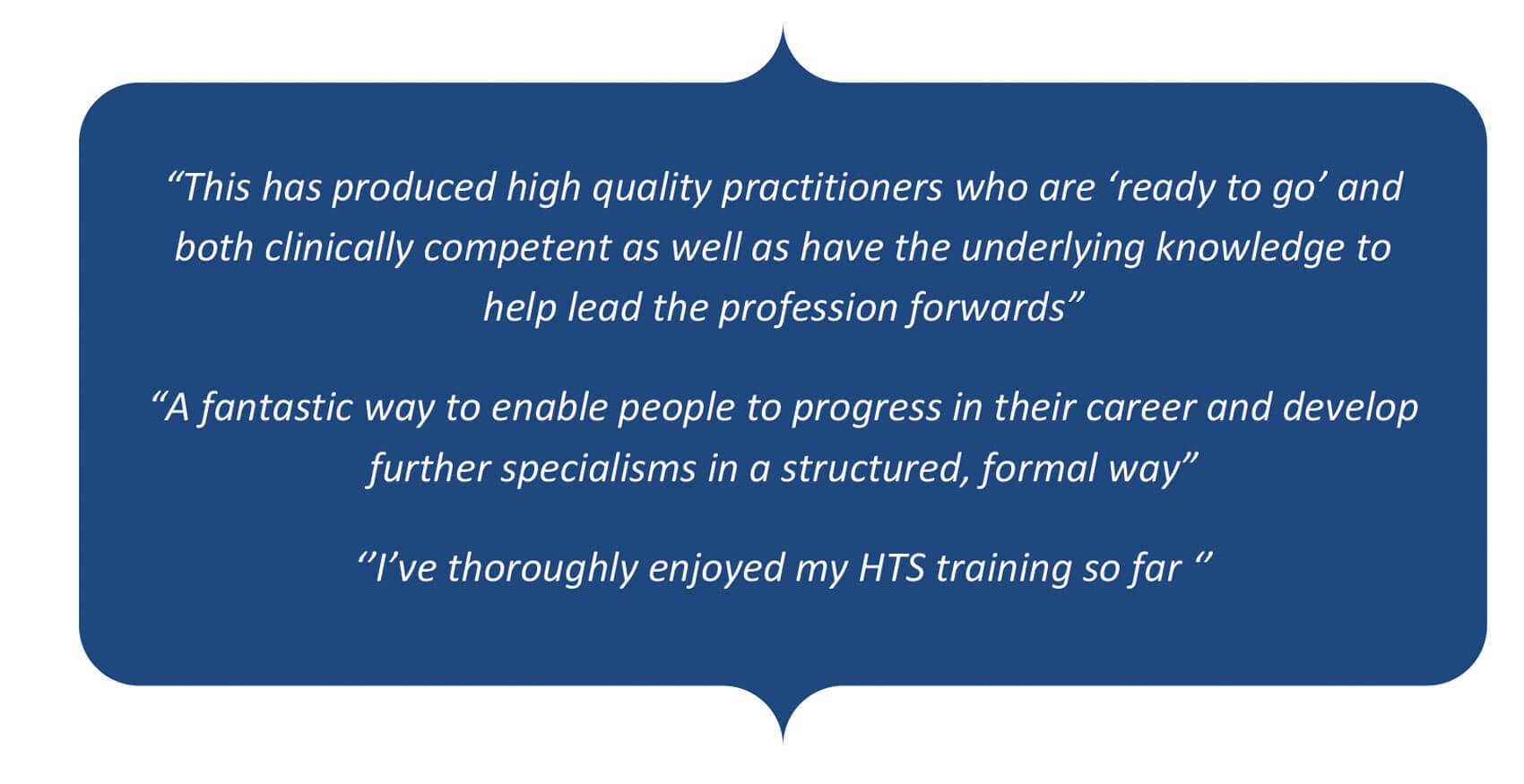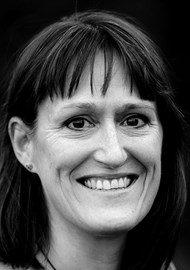After 15 years of running the Higher Training Scheme (HTS), the British Academy of Audiology (BAA) relaunched its postgraduate training scheme this year. We hear about the updated scheme and how it combines theoretical study and clinical training to provide healthcare scientists with the required skills and knowledge to work in specialist clinical areas.
Whilst routine adult aural rehabilitation and ENT clinic support typically comprises a significant proportion of an audiology department’s workload, there is also a need to provide or enable access to specialist services such as more detailed auditory assessments, paediatric habilitation, balance assessment and rehabilitation, and services for those with additional needs such as dementia and learning disabilities.
With honours-level audiology degrees usually just requiring clinical competency delivering routine services, and assisting with some of the more specialist areas, there is an ongoing need to provide postgraduate training to enable the development of more specialist skills.

Figure 1. Current HTS modules.
The Higher Training Scheme is an ‘off the shelf’ modular scheme, currently covering nine clinical areas (Figure 1). Each module has a detailed specification covering the scope of cases for the module, theoretical knowledge required, the range of experience the candidate needs to acquire, and clinical competencies. Candidates complete an online logbook to monitor their progress. There is a requirement to gain a minimum of 10 UK Master’s level credits covering the main elements of the module either before or during training. Once they have gained all the required experience, Master’s level credits, and reached the required level of clinical competency, they can apply to be examined. This examination involves two external examiners visiting the candidate in their own department, to be observed in clinic and then complete a viva voce examination.
Each candidate has an accredited supervisor, who is responsible for overseeing all training to include ensuring all staff providing training in clinic are suitably experienced in the clinical area, and meet requirements outlined in the regulations. Whilst there is an advantage of having your supervisor and training in the department in which you usually work, this might not always be possible; for example, if the training is required prior to setting up a new service which hasn’t previously been provided within the local service, so there are no suitably experienced staff to provide training.
The scheme recognises the need to combine advanced theoretical knowledge with developing specialist clinical skills, to enable critical appraisal of the evidence base and of your own skills and limits of ability. This is especially important when working in specialist areas when conflicting or incomplete results may be more common. Being awarded the HTS in a particular clinical area shows the individual has the skills required to work independently and lead clinics. The scheme is not about developing experts, recognising the wealth of experience required to become expert. It does, however, provide the grounding for professionals to become the experts of the future.
Prior to the HTS, the only postgraduate training scheme available was accessible to those who held a full MSc in Audiology, which was developed prior to the unification of Audiology as a single profession. This meant that the majority of the workforce who trained by a technical or undergraduate route, could not access a recognised postgraduate training scheme. Often the only option was to be trained in-house but, whilst this provided excellent training for some, this was not always the case. It also meant that departments needed to devise their own training programmes which could be time consuming, and there was no external verification and qualification to show the standards that had been met. The HTS module content has been developed by experts in the field, giving a consensus of which skills and knowledge are required to work at this level. The external verification not only gives the individual a transferable qualification, but also gives the local department robust evidence from a quality assurance point of view, that the staff working in particular clinics have attained the required level of competency.

Figure 2. Quotes from a survey of members, 2019.
Over the last 15 years, the scheme has been held in high regard [1] (see Figure 2) and is now often included in the required personal specification for specialist posts at Agenda for Change band 6 or 7 and above. It is recognised by the Association of Clinical Scientists as a means to demonstrate certain competencies, to enable registration as a Clinical Scientist, and there are plans to put it through the accreditation process with the Registration Council for Clinical Physiologists to be used in the registration of Hearing Therapists. The recent updating of the scheme involved the review of the content of all modules to make sure it was comparative with current and emerging clinical practice, and the breaking up of some modules into smaller modules to make them more accessible to the membership, in addition to developing new modules. The logbook has been moved online and regulations updated to make processes more streamlined whilst ensuring the scheme remains robust.
“Being awarded the HTS in a particular clinical area shows the individual has the skills required to work independently and lead clinics”
The scheme is accessible to British Academy of Audiology members who are qualified audiologists (Healthcare Scientist Career Framework ‘practitioner’ level [2]), and candidates include those who have qualified fairly recently as well as more experienced practitioners and clinical scientists. The scheme is complementary to the Scientist Training Programme [3], as it provides a more modular approach to enable tailoring of training to either an individual’s or department’s needs, in addition to a wider range and breadth of specialist areas. Motivation to complete the scheme comes from both individuals and managers; individuals wanting to progress their career, gain qualifications and develop skills and knowledge in an area of interest, and managers wanting to promote development, ensure there is robust succession planning, and have evidence of quality assurance. Since the relaunch in April 2021, there has been a significant rise in interest in the scheme, and I am sure it will continue to enable the provision of high-quality services for the next 15 years.
References
1. Martin H. Specialist Training for Audiologists: What is the demand? British Academy of Audiology internal report 2019.
2. Academy for Healthcare Science. Healthcare Scientist Career Framework.
www.ahcs.ac.uk/about/the-healthcare
-science-industry/career-framework-for
-healthcare-scientists
Last accessed September 2021.
3. National School of Healthcare Science. Scientist Training Programme.
https://nshcs.hee.nhs.uk/programmes/stp/
Last accessed September 2021.
Declaration of Competing Interests: HM has been reimbursed by the BAA for expenses in attending conferences as a guest speaker and examining on the HTS scheme. She has carried out occasional consulting work for the BAA.





